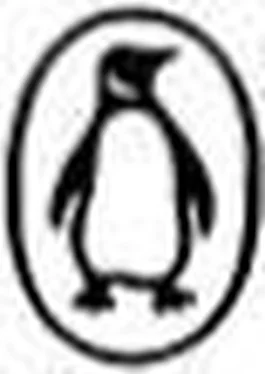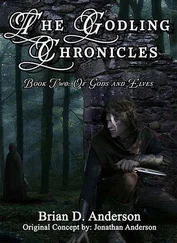Davidson, H. - Gods and Myths of Northern Europe
Здесь есть возможность читать онлайн «Davidson, H. - Gods and Myths of Northern Europe» весь текст электронной книги совершенно бесплатно (целиком полную версию без сокращений). В некоторых случаях можно слушать аудио, скачать через торрент в формате fb2 и присутствует краткое содержание. Жанр: Старинная литература, на английском языке. Описание произведения, (предисловие) а так же отзывы посетителей доступны на портале библиотеки ЛибКат.
- Название:Gods and Myths of Northern Europe
- Автор:
- Жанр:
- Год:неизвестен
- ISBN:нет данных
- Рейтинг книги:5 / 5. Голосов: 1
-
Избранное:Добавить в избранное
- Отзывы:
-
Ваша оценка:
- 100
- 1
- 2
- 3
- 4
- 5
Gods and Myths of Northern Europe: краткое содержание, описание и аннотация
Предлагаем к чтению аннотацию, описание, краткое содержание или предисловие (зависит от того, что написал сам автор книги «Gods and Myths of Northern Europe»). Если вы не нашли необходимую информацию о книге — напишите в комментариях, мы постараемся отыскать её.
Gods and Myths of Northern Europe — читать онлайн бесплатно полную книгу (весь текст) целиком
Ниже представлен текст книги, разбитый по страницам. Система сохранения места последней прочитанной страницы, позволяет с удобством читать онлайн бесплатно книгу «Gods and Myths of Northern Europe», без необходимости каждый раз заново искать на чём Вы остановились. Поставьте закладку, и сможете в любой момент перейти на страницу, на которой закончили чтение.
Интервал:
Закладка:
Jan de Vries, Altgermanische Religionsgeschichte , 2 vols., 2nd edition, Walter de Gruyter, Berlin, 1956.
Additional information about recent work on Scandinavian mythology will be found in:
E. O. G. Turville-Petre, Myth and Religion of the North , Weidenfeld & Nicolson, 1964.
An earlier book in English which may be useful is:
J. A. MacCulloch, Mythology of All Races , Vol. 11 (Eddic), 1930.
Where reliable English translations are available of the works referred to, they are given in the list of names and sources.
Names and Sources
In accordance with the usual English custom, I have throughout this book simplified Old Norse and other unfamiliar names when this seemed desirable, in particular omitting accents and final r , and replacing the letter ð by d and þ by th . In the following list of names and sources which may be unfamiliar to the reader, the Old Icelandic or Old English form has been given in brackets where a change has been made.
The following may serve as a rough guide to pronunciation of Old Icelandic names:
ð – voiced sound of th , as in English then
þ – voiceless sound of th , as in English thin
á – as oa in English broad
 – as o in English not
– as o in English not
ø – as eu in French peur
æ – as ai in English air
au – as ou in English loud
The final r is not pronounced as a separate syllable, therefore Garmr and similar words are not pronounced as two syllables. The accent normally falls on the first syllable.
ADAM OF BREMEN: Author of the History of the Archbishops of Hamburg-Bremen, Gesta Hammaburgensis ecclesiae pontificum (translated by F. J. Tschan, Columbia University Press (New York) 1959), who lived in the eleventh century.
AEGIR (ÆGIR): God of the sea.
AESIR (ÆSIR): Race of the gods to which Odin and Thor belong
ALFHEIM: Home of the light elves
AGNI: Early king of Sweden, married to Skialf, who caused his death
ALAISIAGAE: Female supernatural beings, connected with the war god, called ‘goddesses’ on an altar of the Roman period on Hadrian’s Wall
ALCIS: Twin gods, said by Tacitus to be worshipped by the Germans
ANDVARI: Dwarf who possessed a golden treasure, taken from him by Loki to pay the ransom for Otter
ANGLO-SAXON CHRONICLE: Set of annals in Anglo-Saxon, giving a year by year record of events, begun in Wessex in the mid ninth century and continued, in a number of local versions, until the Norman Conquest
ANGRBODA: ‘Boder of Grief’, giantess on whom Loki begot monsters
ASGARD (ASGARðR): Home of the gods
ASKR: ‘Ash tree’. Name of the first man created by the gods from a tree on the sea-shore
AUðHUMLA: ‘Rich hornless cow’. The primeval cow which nourished the first being, Ymir, and licked the ancestor of the gods out of the melting ice
AURVANDIL (AURVANDILL): The husband of a seeress who tried to charm the whetstone out of Thor’s head, whose toe Thor threw up to become a star
BALDER (BALDR): Son of Odin, called the Beautiful, slain by Hoder
BALDRS DRAUMAR: ‘Balder’s Dreams’, poem in the Edda telling how Odin sought to discover the fate of Balder. Also known as Vegtamskviða
BATTLE OF THE GOTHS AND HUNS: Name given to poem in Hervarar Saga , a survival of earlier heroic poetry (translated by N. Kershaw, Anglo-Saxon and Norse Poems , Cambridge University Press, 1922)
BAUGI: Brother of Suttung, the giant who held the mead of inspiration
BEDE (BEDA): Known as the Venerable. Scholar and historian in the Northumbrian monastery of Jarrow in the eighth century, who wrote many Latin works, including A History of the English Church and People (translated by Leo Sherley-Price, Penguin Classics, 1955)
BEOW: Or Beaw. Name occurring in genealogies of Anglo-Saxon kings, thought by some to be a heathen deity of fertility
BEOWULF: Anglo-Saxon epic poem, surviving in one MS. of about A.D. 1000, known by the name of its hero, Beowulf of the Geats (translated by David Wright, Penguin Classics, 1957)
BERGELMIR: Giant who survived the flood caused by the blood of the slaughtered Ymir
BERSERKS (BERSERKIR): Warriors possessed by battle fury, usually impervious to wounds
BEYLA: ‘Bee’ (?). Companion of Byggvir, a minor inhabitant of Asgard, mentioned in Lokasenna
BIARKI (BOðVAR-BIARKI): ‘Little Bear’. Famous Danish warrior who could fight in bear form, follower of King Hrolf
BIFROST (BIFRǪST): Rainbow bridge linking earth and heaven
BOBD: Female spirit of battle in Irish sagas, who often appeared in bird form
BOE (BOUS): Son of Odin and Rinda in Saxo, who avenges Balder’s death
BOR (BORR): Son of Buri and father of Odin
BRAGI: God of poetry, married to Idun. Also the name of the ninth-century Icelandic poet, Bragi Boddason
BRIAN BORU (BORUMH): Christian High-king of Ireland, who fell at Clontarf in 1014 fighting against the Vikings of Dublin and their allies
BRISINGAMEN (BRÍSINGAMEN): ‘Necklace of the Brisings’ (?). The great treasure of Freyja, thought to be a necklace, obtained from the dwarfs
BROSINGAMENE: A great treasure, thought to be a necklace or collar, said in Beowulf to be taken from Eormanric Hama
BRYNHILD (BRYNHILDR): Valkyrie and princess, loved by Sigurd the Volsung but married to King Gunnar. Burned herself to death when Sigurd was killed
BURI (BÚRI): First being created from the primeval ice, father of Bor
BYGGVIR: From bygg , barley (?). One of the minor companions of the gods, mentioned in Lokasenna
CAEDMON (CÆDMON): Anglo-Saxon poet of the seventh century who was famous for his Christian poems on Biblical subjects. His story is told by Bede
CODEX REGIUS: Icelandic MS. of the thirteenth century (now in Copenhagen) containing a number of poems about the gods and heroes, known as the Edda
COIFI (CEFI): High priest of the heathen gods in Northumbria in the seventh century, according to Bede’s account
DARRAðARLJÓð: ‘Lay of the Spear’. Poem preserved in Njál’s Saga , a chant of supernatural women before battle (translated by N. Kershaw, Anglo-Saxon and Norse Poems , Cambridge University Press, 1922)
DÍSIR: Female supernatural beings
DONAR: Thunder god worshipped by the heathen Germans
DRAUGR: Inhabitant of a grave mound who is restless after death
DRAUPNIR: Gold ring of Odin, from which other rings are produced
DREAM OF THE ROOD: Name given to Old English Christian poem about Christ’s Cross, preserved in the Vercelli Book of the tenth century, and also written in runes on a carved cross of about the seventh century at Ruthwell (translated by R. K. Gordon, Anglo-Saxon Poetry , Everyman Library, 1927)
EDDA: Name given to collection of poems preserved in the Codex Regius , known as the Elder Edda to distinguish them from the Prose Edda written by Snorri Sturluson (translated by L. M. Hollander, Texas University Press, 1929, 1962)
EDWIN: King of Northumbria who was converted to Christianity in the seventh century
EGILS SAGA: Story of Egill Skallagrímsson, the famous poet and adventurer who lived in Iceland in the tenth century. One of the longest and best known of the Icelandic family sagas (translated by E. R. Eddison, Cambridge University Press, 1930)
EGILS SAGA OK ÁSMUNDAR: One of the legendary sagas in the Fornaldar Sǫgur collection, telling of the adventures of two foster-brothers
Читать дальшеИнтервал:
Закладка:
Похожие книги на «Gods and Myths of Northern Europe»
Представляем Вашему вниманию похожие книги на «Gods and Myths of Northern Europe» списком для выбора. Мы отобрали схожую по названию и смыслу литературу в надежде предоставить читателям больше вариантов отыскать новые, интересные, ещё непрочитанные произведения.
Обсуждение, отзывы о книге «Gods and Myths of Northern Europe» и просто собственные мнения читателей. Оставьте ваши комментарии, напишите, что Вы думаете о произведении, его смысле или главных героях. Укажите что конкретно понравилось, а что нет, и почему Вы так считаете.












